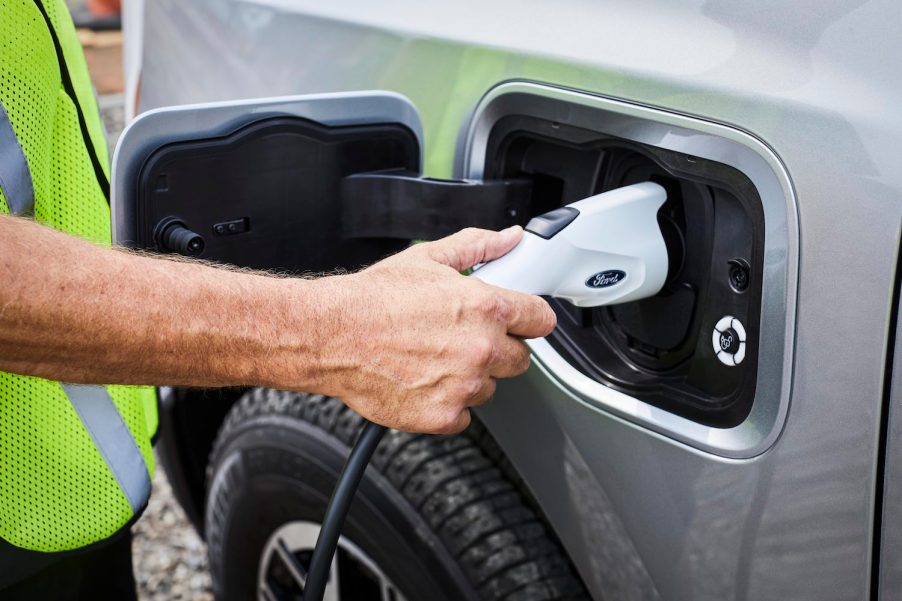
Hurry and Buy These Tesla and Ford EVs Before They Lose Their Federal Tax Credit in 2024
All the changes to the Federal EV tax credit are enough to make your head spin. First every automaker had a finite number of tax credits to offer, and soon companies such as Tesla and Ford ran out. Then in 2022, the rules changed and both automakers were once again eligible. Now, a third change means that certain models will be eligible while others won’t. And the difference comes down to where each EV’s battery was made.
The second version of the EV tax credit includes several major changes: it will apply to certain used electric vehicles, be available the day you buy your EV (as opposed to when you next file taxes), but comes with an income tax. Perhaps most importantly, starting in 2024 it will only apply to vehicles with battery components and raw materials that come from the U.S. or our allies.
What does this wording mean? In practice, it means not China. The government is trying to decrease our dependence on batteries with lithium from Chinese-occupied Tibet or that were manufactured in China. Unfortunately for automakers, Chinese-built batteries are still much cheaper. What’s more, the law is vague enough that even automakers are still unsure which EVs will qualify for the tax credit in 2024. Here’s what we know.
Ford’s Mustang Mach-E was briefly eligible for the tax credit, but will not be as of January 1st, 2024. This four-door electric crossover is assembled in Cuatitlán Izcalli, Mexico. In 2024, its MSRP will be $43,495. To keep costs low, Ford sourced enough of the Mustang’s batteries and battery components from China that it no longer qualifies for the tax credit.
What about the F-150 Lightning? Even Ford is unsure whether this Dearborn-assembled electric truck will qualify for the 2024 credit.

Another hugely popular model that will no longer be eligible for the tax credit is the Tesla Model 3. In 2023, Tesla slashed the prices of its smallest sedan. With the addition of tax credits, it briefly cost $30k or less, depending on your state. But one reason for the Model 3s cheap price was that Tesla sourced its batteries from China.
There is no word yet on the status of Tesla’s other sedans and SUVs. The automaker is pioneering a new battery, built in-house at its Texas factory, debuting with the Cybertruck. So here’s to hoping all future Teslas qualify for the tax credit.
It might be quicker to list the EVs that will qualify for the federal tax credit in 2024. According to The Sun, both Nissan and Rivian have announced that their entire lineups will still qualify. General Motors is unsure where its EVs will stand, and the status of the Volkswagen ID.4 is still unclear.
As of this week, Yahoo Finance predicts that only 10 EVs will qualify for the federal tax credit in 2024. But its list doesn’t include any Nissans or Rivians. Here are Yahoo’s eligible EVs and their pre-credit MSRPs.
- Chevrolet Bolt EV — $26,500
- Chevrolet Equinox EV – $48,995
- Ford F-150 Lightning — $49,995
- Tesla Model 3 Performance — $50,990
- Chevrolet Silverado — $51,895
- Tesla Model Y Performance — $52,490
- Chrysler Pacifica PHEV — $53,425
- Chevrolet Blazer EV — $60,215
- Cadillac LYRIQ — $58,590
- Tesla Model X — $79,990
Which EVs will actually be eligible in 2024? We’ll just have to wait and find out.
Next, find out which used electric vehicles are eligible for the tax credit, or get the latest updates on the 2024 Model 3 pricing without the credit in the video below:





